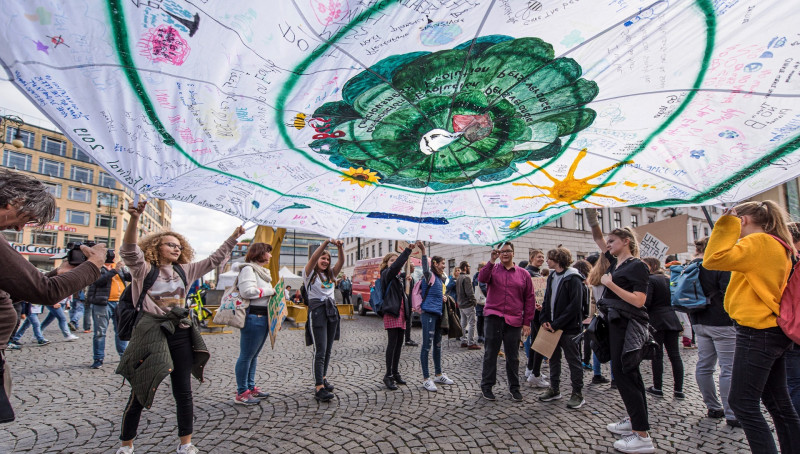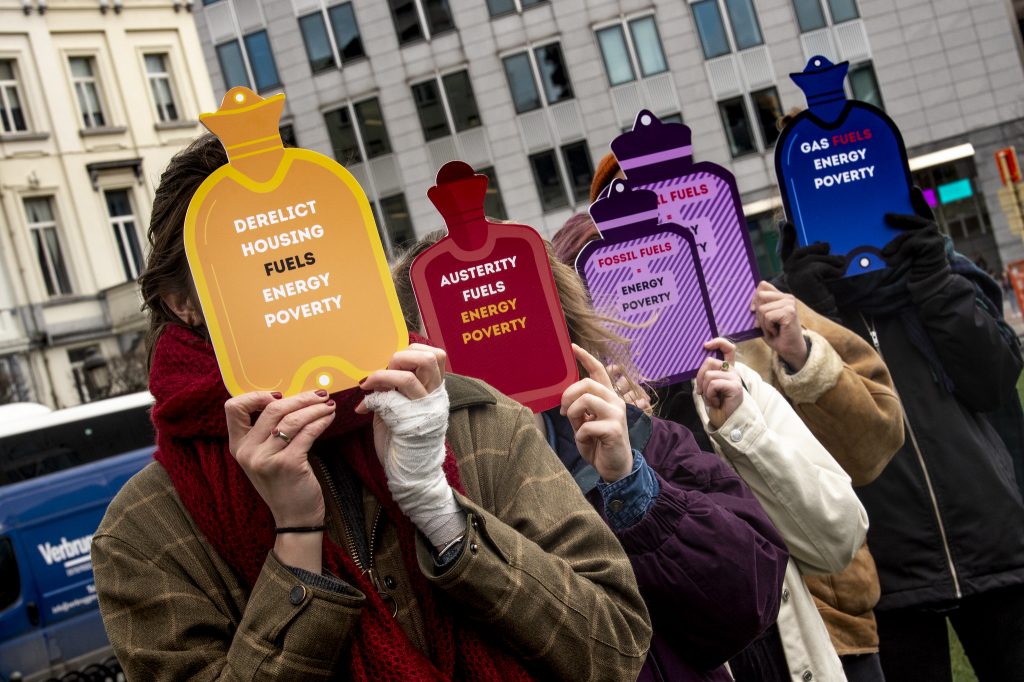This is a ground-breaking moment for the future of Europe but the bloc’s recovery package falls short of building a fairer future.
By Jagoda Muni?, director, Friends of the Earth Europe. First published on Thomson Reuters Foundation.
The European Commission has unveiled its plan to administer a €750 billion shot of adrenaline to pull Europe’s economy back from the Coronavirus brink. With the flagship European Green Deal in the background, Commission President Ursula von der Leyen promised to make the recovery ‘green, digital and resilient’. This is a ground-breaking moment for the future of Europe. But the recovery package so far falls lamentably short of building back a better Europe.
We are at once facing a pandemic and a global climate and ecological crisis – a lethal combination both in the near and far term. Not only must our inequitable, polluting economies rebuild from a deep recession; they must undergo a total transformation within ten years, if we’re to limit global warming to 1.5°C.
This moment is a once in a lifetime opportunity to do things differently from now on – to put Europe on a sustainable, resilient and just footing. That must mean enacting a Just Transition to 100% renewable and community energy; helping Europe’s poorest regions and most vulnerable people; and doubling-down on sustainable and fair solutions for food, agriculture, nature and resource use. This may be our best and last chance to halt runaway climate crisis and biodiversity collapse.
European leadership
In these unprecedented times, we look to our leaders to rise to their responsibilities and respond holistically to interconnected emergencies. Certainly, we can say that President von der Leyen has learned from the mistakes of 2008’s economic crash. Her mobilisation of massive joint funds to fire up our post-Covid-19 economies, instead of imposing austerity, is necessary. The emphasis on a ‘green recovery’, and help for the most impacted, is certainly welcome. And her package is a noble attempt to act in solidarity to prevent Europe’s diverging forces from further splitting it.
Unfortunately, judged against the scale and urgency of the planetary emergency we still face, this ‘green’ package has a distinctly brown tinge. It seeks a fast return to normal – though normal was already a tragedy for so many people, and for the planet.
No strings attached
The package lacks strings to condition bailouts. This reticence is ludicrous. Member States are being allowed to spend unused EU funds for rapid crisis response until 2022 – subsidies for fossil fuels are allowed under these rules. State aid to companies also has no green conditions, and normal restrictions are temporarily relaxed. Allowing handouts to fossil fuel projects or corporations who dodge tax will put us on course for a dirty, unfair future. There equally should be conditions attached to bailouts to foster decent jobs, limit profit extraction, and reduce environmental impacts.
Too many of the measures put corporate techno-fixes first. The Commission is going all-in on unproven technologies like hydrogen. In reality, boosting hydrogen is no vaccine against the climate emergency, and risks continuing our dependence on polluting fossil fuels that go into making it. Likewise, the package promotes digital farming as a way out of the downturn; but this is no panacea. It could further disadvantage small farmers, and, unless clear rules are made to guarantee farmers control over their data, could further tighten the stranglehold of corporations on our food.
Shaping the recovery for fair societies within Earth’s limits
It’s good to see investment in renovating Europe’s inefficient buildings – helping to create jobs, reduce carbon emissions, and alleviate energy poverty. And a boost to the Just Transition Fund to help workers and regions make the fossil free shift. Both still require massive additional investment, urgency, and clear targets. The costs must be shouldered by the wealthy, not poorest parts of society.
Our collective future will be shaped by how this money is spent. Coronavirus would be a double tragedy if we return to an unhealthy, unsustainable business-as-usual afterwards. Europe still has a chance to build back better. Now it is down to the European Parliament and above all national governments to support this package and shape it to create the fair societies we need within Earth’s limits. Above all, they must act for our common future, not just what’s in it for them.







